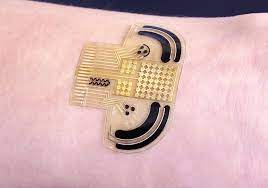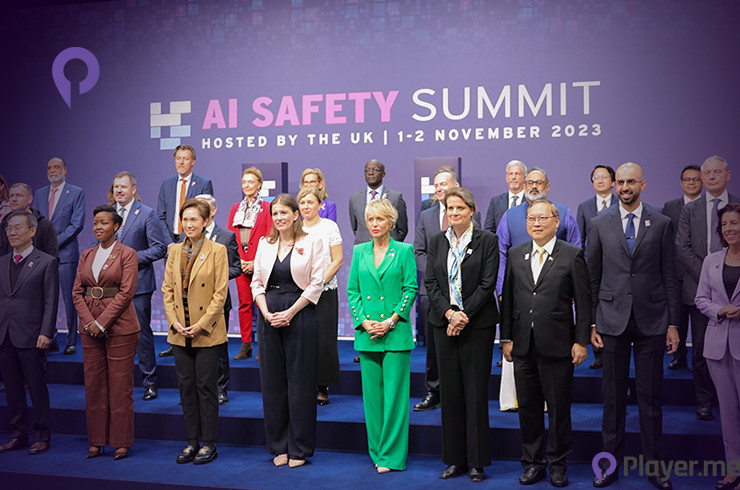Caltech’s Wei Gao, Assistant Professor of Medical Engineering, has unveiled a groundbreaking wearable device known as CARES (Consolidated Artificial-Intelligence-Reinforced Electronic Skin), designed to monitor stress levels in real-time. This electronic skin, a thin adhesive worn on the wrist, utilizes a combination of sweat sensors, pulse waveforms, skin temperature, and galvanic skin response to continuously track nine markers associated with stress responses. With the integration of machine learning, CARES aims to provide timely insights into stress levels, enabling early intervention for improved mental and physical well-being.
CARES distinguishes itself through its innovative design, incorporating multiple sensors to comprehensively measure stress-related biomarkers. Unlike traditional self-reporting methods, this wearable device offers a non-intrusive way to monitor stress during daily activities. The nine markers it tracks include hormones like epinephrine, norepinephrine, and cortisol and metabolites such as glucose, lactate, and uric acid. These physiological signals, pulse waveforms, and skin responses form a holistic approach to stress monitoring.
Material advancements for enhanced performance
One significant improvement in CARES is using new materials that enhance sensor stability during prolonged use. Though efficient in accurate compound measurement, previous materials exhibited degradation in the presence of bodily fluids. The introduction of a nickel-based compound stabilizes enzymatic-based sensors, while a new polymer boosts the stability of ion-based sensors. These enhancements contribute to the device’s reliability during long-term operation, ensuring consistent and accurate stress monitoring.
An important stride in stress monitoring technology, CARES incorporates machine learning to interpret the complex interplay of physiological and chemical data. Stress manifests in diverse forms, affecting various bodily systems. The device’s ability to accurately analyze this wealth of data is crucial to its effectiveness. Experiments involving subjects wearing CARES accurately measured interconnected physiological and chemical biomarkers during stress-inducing activities, such as vigorous exercise or intense video gameplay.
Real-time insights for various environments
The potential applications of CARES extend beyond daily life stress monitoring. Gao notes that high levels of stress and anxiety, prevalent in demanding work environments like those experienced by soldiers or astronauts, can significantly impact performance. The real-time stress-level insights provided by the wearable sensor, coupled with machine learning, offer the possibility of timely intervention to mitigate the effects of stress on individuals working in challenging conditions.
A study conducted with CARES involved subjects answering questionnaires to self-report their feelings of anxiety and psychological stress before and after exposure to stressful situations. Clear correlations emerged between self-reports of stress and physicochemical correlates measured by CARES. The ability to validate self-reported feelings with objective data enhances the reliability and usefulness of the device in assessing stress levels.
CARES represents a significant advancement in stress monitoring technology, offering real-time insights into stress levels through a combination of physiological and chemical biomarkers. The integration of machine learning enhances its ability to accurately interpret complex data, making it a promising tool for assessing stress in various environments. With potential applications in challenging work conditions and everyday life, CARES opens new possibilities for proactive stress management and intervention.




